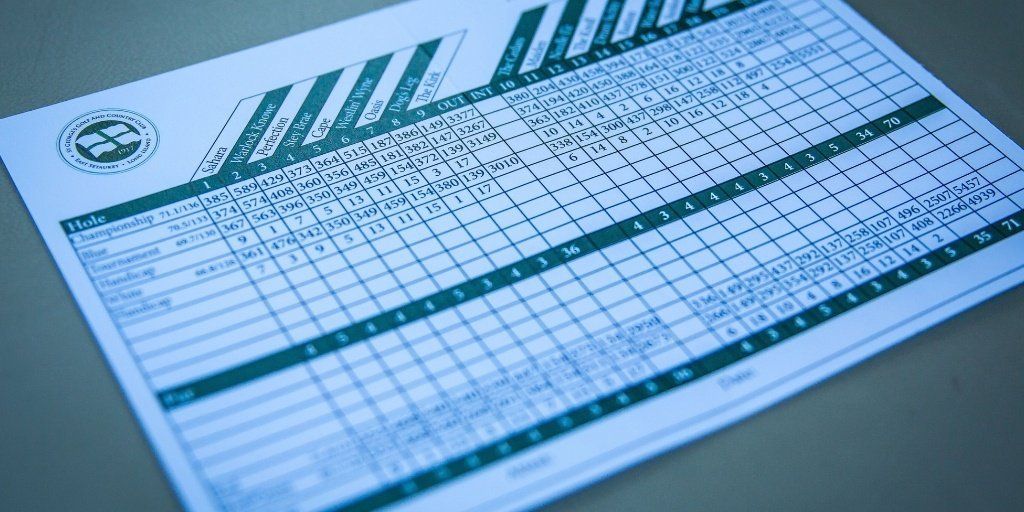
Whenever you arrive at the golf course before any round, your technical skills are what they are. The goal for a round shouldn’t be to shoot a low score but to focus on the things that are going to give you the best chance of accessing your best technical skills, and hence, give you the best opportunity of a low score.
Essentially, the result of a round of golf is a cumulation of what you were focusing on throughout. Are you aware of what you are focusing on and whether it helps you or not? In this article I’m going to help you find out what you need to focus on and how to hold you accountable to it, so you play better golf more often.
Some Questions For You
First, let’s see if you have the answers for the following questions:
- What are you focusing on before, during and after every shot?
- Is there consistency with your focus or do you find yourself searching for swing thoughts that work and become more and more disconnected with your intention for each shot?
- Do you know from experience what helps you produce your best swings and shots?
- Are you able to remain “emotionally neutral” and positive in between shots, or do you spend time listening to that little voice in your head that’s sowing the seed of doubt in your ability?
- Are you able to stay present or do you spend time speculating about the future?
- Does your body language and self-talk remain confident?
- Are you free of tension and how good is your tempo?
We need to become more aware of what we’re focusing on during a round and train ourselves to habitually focus on the things that will help us stay confident, relaxed and in the best state of mind to play every shot to the best of our ability.
No two golf swings are the same, and neither is the optimal mental approach to golf for each player. However, there are certain fundamentals to the mental game that we can ALL work on regardless of the level we play at.
As a mental coach to golfers for the past ten years and having worked with all levels of player from weekend golfers to Tour player, I know firsthand what top players focus on to maximize their chances of success, and this is what I want to help you with.
How can we do this?
Reflection
Identify patterns in your play. As part of my post-round review process (and you should do this yourself), I’ll ask a player to list the best shots they hit that day. Then I’ll ask them to try and remember what they were focusing on before and during those shots.
Reflection like this (and experimentation during practice) can help you form “process goals” for your shots (i.e. what you need to make sure you’re focusing on). Some of the more successful students that I work with are keen journalers and try to find patterns in everything from how they much sleep they got the night before, what they ate before and during their round, what they did during their warm-up, etc.
Holding Yourself Accountable
All my students use what I call a “Mental Game Scorecard”. This helps them stay accountable to what’s most important and over time, makes them much more aware of what they are focusing on during a round. It also helps us learn what particular mental skills we need to improve.
When you use the mental game scorecard, you’ll get a mental score for your round, which tells you how well you performed mentally, which will determine whether you gave yourself the best chance of playing well.
Having mental goals for your round is the best way to unlock your best technical game and gives you the best opportunity for scoring well.
The next step: Let’s see how good your mental game is!
I’d like you to take the challenge and I’m convinced you’ll see better results. To download your copy of the mental game scorecard and post-round review, please click here.
We care about the protection of your data Read our Privacy Policy